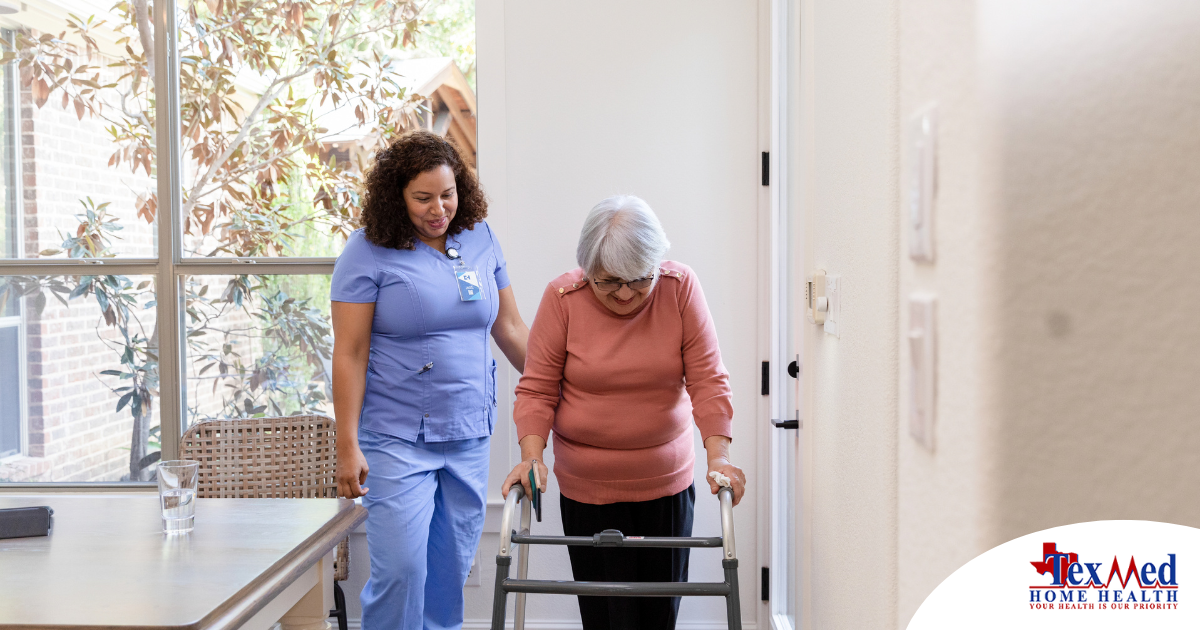When considering a career in the physical therapy field, it’s essential to understand the distinctions between a Physical Therapist (PT) and a Physical Therapist Assistant (PTA). While a PT and a PTA both play integral roles in the patient rehabilitation process, their education requirements and job responsibilities differ. Read on to explore the similarities and differences between PTs and PTAs in Killeen, as well as the pros and cons of each profession.
What Does a Physical Therapist Do?
A Physical Therapist (PT) is a licensed healthcare professional trained to diagnose and treat individuals with physical impairments, disabilities, or limitations. PTs play a vital role in helping patients regain or improve their mobility, manage pain, and restore functionality. PTs can assess various mobility-limiting conditions, develop individualized treatment plans, and monitor their patients’ progress throughout the rehabilitation process.
PTs work in various settings, including hospitals, outpatient clinics, private practices, residential care facilities, rehabilitation centers, and private homes. Recognized as experts in their chosen field, PTs routinely collaborate with doctors and other healthcare professionals.
Pros of being a Physical Therapist:
- Autonomy: PTs can make independent decisions regarding patient care, allowing them to significantly impact their patients’ lives.
- Rewarding Career: Helping patients regain mobility and improve their quality of life can be incredibly fulfilling.
- Versatile Work Environment: PTs encounter diverse patient experiences working in various settings.
Cons of being a Physical Therapist:
- Extensive Schooling: Becoming a PT requires a doctoral degree, which typically takes around seven years of education and clinical training.
- Administrative Responsibilities: Alongside patient care, PTs are responsible for managing paperwork, maintaining records, and coordinating with insurance companies.
- Physical Demands: The job can be physically demanding, as PTs often help patients perform exercises and provide hands-on treatments.
What Does a Physical Therapist Assistant Do?
While working under the supervision of a Physical Therapist, a Physical Therapist Assistant (PTA) assists patients in their rehabilitation journey. PTAs help patients perform exercises, use specialized equipment, and monitor their progress. A PTA might also document patient responses and communicate relevant information to the supervising PT.
PTAs typically work in the same settings as PTs, including hospitals, clinics, and rehabilitation centers. These licensed professionals work closely with patients, providing hands-on care and ensuring the proper execution of treatment plans.
Pros of being a Physical Therapist Assistant:
- Meaningful Patient Interactions: PTAs often build strong relationships with patients, offering support and witnessing their progress firsthand.
- Less Education: Compared to a PT, the educational path to becoming a PTA is shorter, typically requiring an associate degree that takes two years to complete.
- Balanced Workload: While PTAs have responsibilities, they are not burdened with administrative and managerial tasks like a PT.
Cons of being a Physical Therapist Assistant:
- Limited Autonomy: PTAs work under the supervision of PTs and must follow their instructions carefully.
- Lower Salary: Due to the difference in educational requirements and responsibilities, PTAs typically earn less than PTs.
- Physical Demands: PTAs may need to assist patients with physically demanding exercises, which can be strenuous.
Final Thoughts About Becoming a PT or PTA in Killeen
When contemplating a career in the physical therapy field, one must carefully consider the differences between a PT and a PTA. While both are licensed healthcare professionals who help patients regain or improve their mobility, PTs have more education and autonomy, allowing them to make clinical decisions independently.
Conversely, a PTA works with patients while reporting to a PT supervisor. Choosing to become a PT or PTA ultimately hinges on factors like individual preferences, educational aspirations, and desired level of responsibility.
What Home Health PTs and PTAs Enjoy Most About Their Jobs
Home health care has gained significant attention over the past few years as a rewarding career option for physical therapists (PTs) and physical therapist assistants (PTAs). The advantages of working in home health care as a PT or PTA include:
Personalized Care
One of the primary advantages of home health care is the ability to deliver personalized care to patients in familiar surroundings. As a home health PT or PTA, you’ll develop strong relationships with your patients, providing them with one-on-one attention and tailored treatment plans. This personalized therapy approach improves patient outcomes and promotes a deeper sense of fulfillment in your professional life.
Flexibility and Autonomy
Working in home health care offers greater flexibility and autonomy compared to traditional clinical settings. As a PT or PTA, you have more control over your schedule, allowing you to efficiently balance work and personal commitments. This flexibility enables you to design your day around your patients’ needs, ensuring you can provide care at a time that suits them best.
Varied Work Environment
Home health care offers a diverse work environment that keeps your professional life exciting and dynamic. Instead of being confined to a single clinic or facility, you can travel to different homes and interact with patients from various backgrounds. This variety enriches your clinical experience and challenges you to adapt your skills to different settings, enhancing your professional growth as a PT or PTA.
Enhanced Problem-Solving Skills
In-home health care, you experience unique patient scenarios that require critical thinking and effective problem-solving skills. As you navigate different homes and environments, you must adapt your physical therapy treatment plans accordingly. This constant need for creative problem-solving hones your clinical abilities and broadens your skill set, making you a more versatile and resourceful professional.
Job Security and Career Growth
The demand for home healthcare services has never been greater, ensuring a stable and secure career path for PTs and PTAs. Furthermore, as you gain experience in home health care, opportunities for career advancement and specialization include leadership roles, mentorship programs, or even starting your own practice.
In conclusion, becoming a home health PT or PTA offers many benefits that enhance professional development and personal satisfaction. From the ability to provide personalized care in a comfortable environment to the flexibility and autonomy the job offers, the home healthcare field provides ample opportunities for growth and fulfillment.
If you are passionate about making a difference in people’s lives while embarking on a rewarding career path, home health care could be the perfect fit for your PT skills!
Exciting Career Opportunities for PTs and PTAs in Killeen
If you are a Physical Therapist or Physical Therapist Assistant interested in transitioning into home health care, TexMed Home Health & Personal Care in Killeen would love to speak with you. Due to our expanding patient load, we are currently seeking qualified PTs and PTAs to fill several exciting positions. While proudly serving the Killeen, Copperas Cove, and Temple communities, we support patients and their families with top-quality home healthcare services, including Companionship Care, Household Duties, Meal Planning, Medication Supervision, Intravenous Therapy, Occupational Therapy, Physical Therapy, Skilled Nursing, and Speech Therapy.
As a highly valued member of the TexMed Home Health & Personal Care team, you’ll enjoy a fast-paced, positive work environment where your input is valued and hard work rewarded. We also offer our PTs and PTAs competitive pay, flexible scheduling, ongoing staff training, and career advancement opportunities galore. No matter your experience level, we’d love to hear from you! To learn more about our physical therapy home healthcare jobs, please visit us today at www.texmedhh.com.






